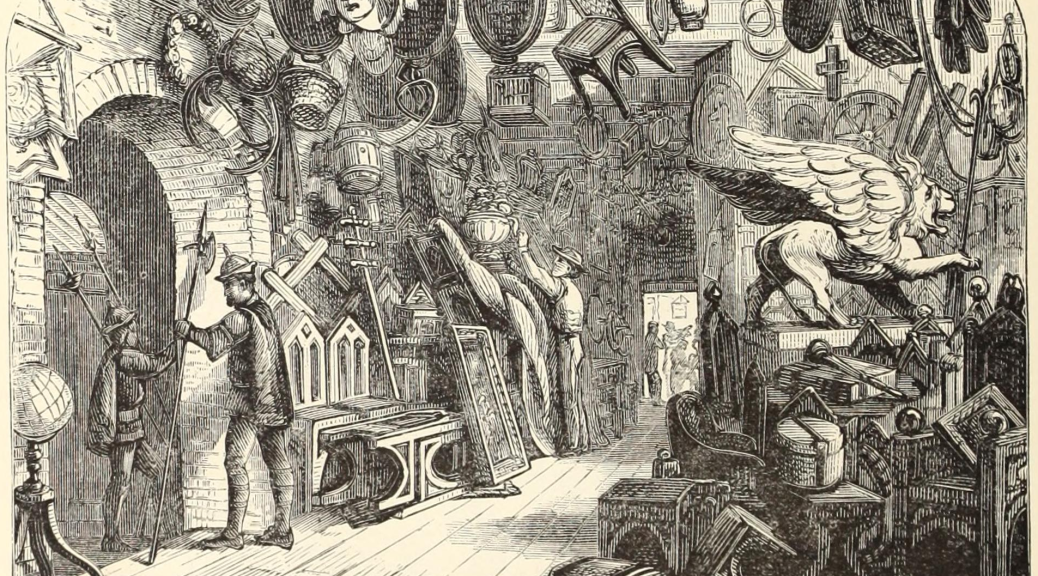The following illustrations are taken from an 1870 book about the backstage areas of Edwin Booth’s theatre in New York City.
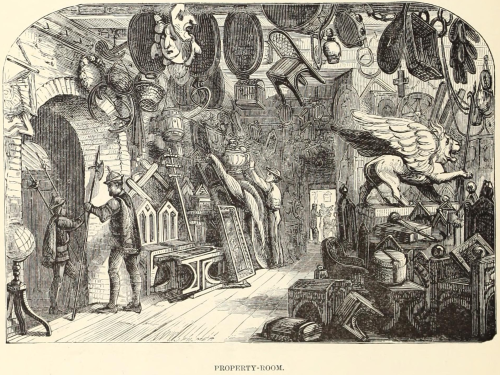
The book has this to say about the property room and adjoining armory:
The “property room” gathers within its fold a marvellous curiosity-shop; helmets and tiaras, mitres and swords, crowns and masks, gyves and chains; furniture of the past and of to-day, “cheek by jowl;” griffins and globes, biers and beer-cups, coffins and thrones; decorations for the garden, the boudoir, the palace; furniture for the salon or the hovel—a multitude of things, in fact, more numerous than can readily be catalogued. The “armory”, if not a collection of such strange things, is interesting, and looks as if we were wandering through some ancient tower or castle rather than “behind the scenes” at a theatre.
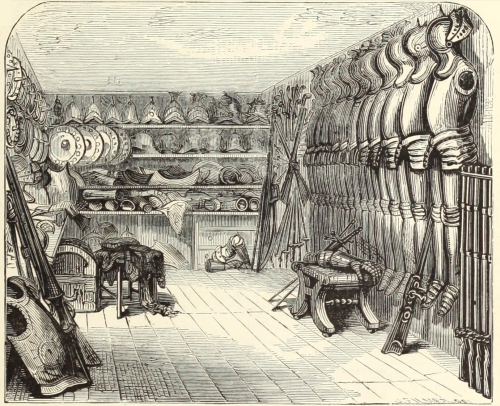
Because the illustrations are so charming, I thought I would show a few more.
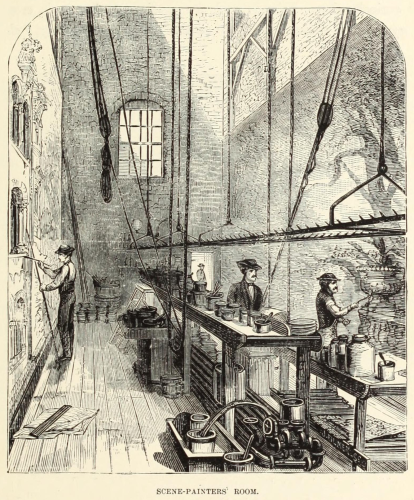
The book also does the great service of giving the names of all the backstage workers at that time:
We must give large credit for all the complete features of this theatre to Mr. J. L. Peake whose inventive talent constructed the machinery; to Mr. Withan, whose skilful pencil gives us pictures of such rare beauty; to Mr. Deuel, whose tase and research provide all those many accessories of furniture and properties, so often necessary to give illusion to the scene; to Mr. Joyce, who reproduces with historical accuracy the costumes of bygone periods; to Mr. Dunn, the carpenter, without whom the play were naught; and to Mr. Kelsey, engineer, whose care and watchfulness contribute to our safety and comfort.
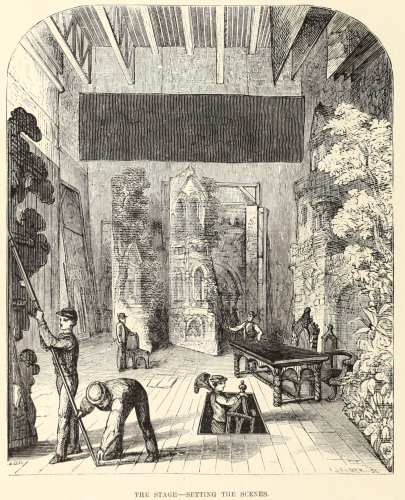
The property man’s full name is James P. Deuel.
Originally published in Booth’s Theatre. Behind the Scenes. Illustrated, by OB Bunce. Reproduced from Appletons’ Journal. New York: Henry L. Hinton, 1870.

